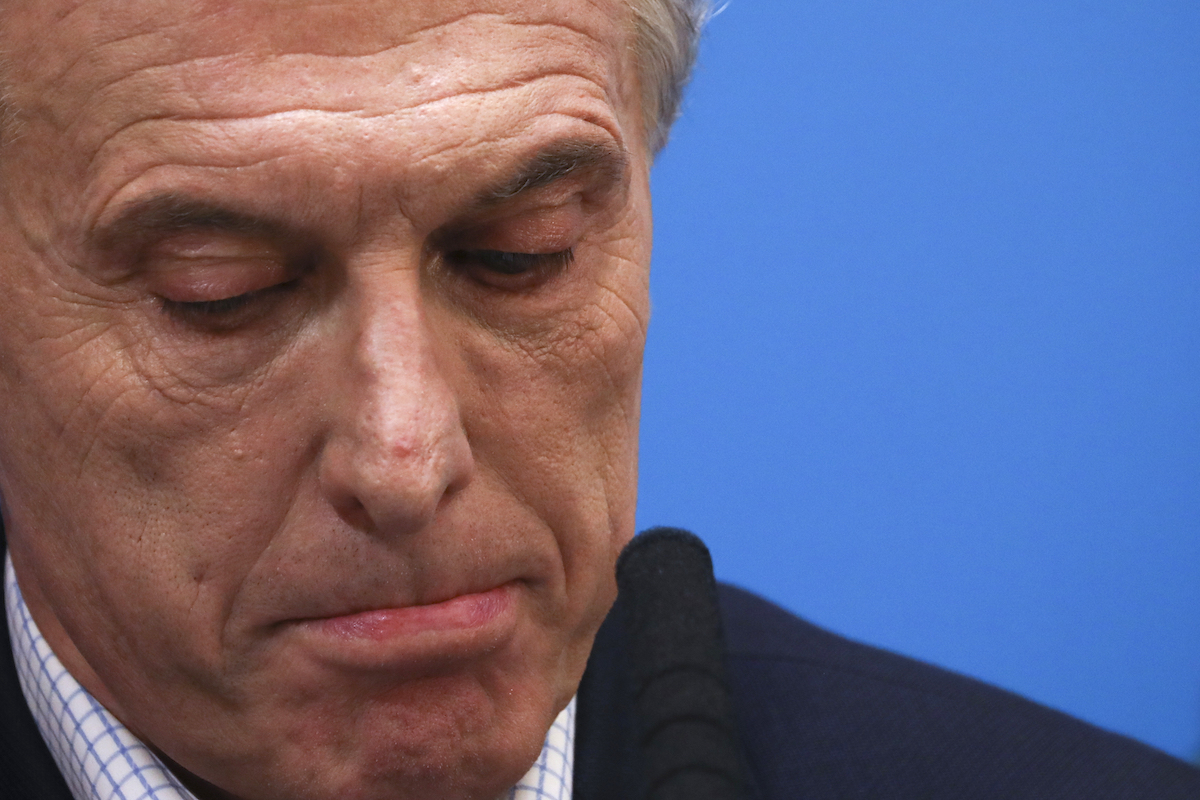

President Mauricio Macri attends a press conference at the government house in Buenos Aires, Argentina, Monday, Aug. 12, 2019. (AP Photo/Natacha Pisarenko)
By ALMUDENA CALATRAVA, Associated Press
BUENOS AIRES, Argentina (AP) — A walloping at the polls led President Mauricio Macri to decree temporary economic relief for poor and working-class Argentines on Wednesday, with measures that include an increased minimum wage, reduced payroll taxes, a bonus for informal workers and a freeze in gasoline prices.
The conservative leader said in a televised address that he recognized the “anger” Argentines expressed in Sunday’s primary election, when Macri trailed his leftist rivals by 15 percentage points. The general election is in October.
“I heard what you wanted to tell me on Sunday,” he said.
The measures “will bring relief to 17 million workers and their families and all the (small and medium businesses) that are passing through a difficult moment.”
“After a very hard year and a half, you said, ‘No more!” he added, comparing the struggles of working class Argentines to people climbing the hemisphere’s highest peak, the nearly 23,000-foot (7,000-meter) Aconcagua.
The fuel price freeze will last 90 days. Other measures will extend for several months.
Those include cuts in taxes withheld from paychecks, as well as subsidies for workers in the informal sector and the unemployed with children. The minimum salary also will rise.
Public sector workers and members of the armed forces also will receive a bonus roughly equal to $85 at month’s end.
The country’s nagging high inflation, including higher rates for utilities, and rising unemployment have eroded support for a president who won election in 2015 boasting of his economic expertise after years of leftist-populist leadership, most recently under Cristina Fernández.
Despite facing several corruption trials, she’s running for vice president on the ticket with her former chief of staff, Alberto Fernández, who is no relation.
That ticket got 47% of the votes in a primary race pitting candidates of all parties against one another. Macri won just 32% in what amounted to an usually precise early public opinion poll.
The size of the leftist victory frightened investors wary of a return to the interventionist, trade-restricting policies implemented under Cristina Fernández, and it pushed Argentine stocks into a historic collapse this week.
The country’s currency had plunged more than 25% against the dollar by Tuesday and continued slipping after Macri’s announcement on Wednesday.
That’s likely to lead to an upward revision of inflation expectations, which were already above 40%.
The government said the new measures will have a fiscal impact of nearly $690 million.
The government have promised the International Monetary Fund that it will end the year without a deficit after obtaining a $56 billion line of financing from the institution.


